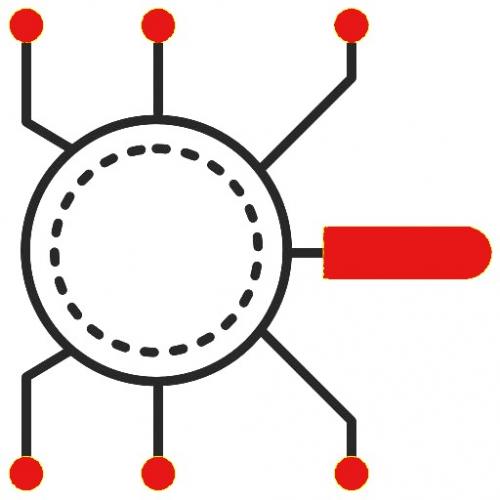Copy Link
Add to Bookmark
Report
IRList Digest Volume 3 Number 30

IRList Digest Tuesday, 25 August 1987 Volume 3 : Issue 30
Today's Topics:
Announcement - Abstracts from next ACM SIGIR Forum (part 2 of 4)
News addresses are ARPANET: fox%vtopus.cs.vt.edu@relay.cs.net
BITNET: foxea@vtvax3.bitnet CSNET: fox@vt UUCPNET: fox@vtopus.uucp
----------------------------------------------------------------------
Date: Mon, 10 Aug 87 15:17:43 CDT
From: nancy@usl-vb.usl.edu (Nancy )
Subject: Abstracts from next ACM SIGIR Forum - sent by Raghavan
ABSTRACTS (part 2 of 4)
10. COGNITIVE MODELS IN INFORMATION RETRIEVAL - AN EVALUATIVE REVIEW
P. J. Daniels
Department of Information Science
City University
Northampton Square, London EC1V 0HB
Selected current and recent work in the area of cognitive modelling is
reviewed. Particular attention is paid to user models (that is, the model
held by a system of a user). The relevance of this work to information
retrieval is assessed and some attempts to include user models in IR sys-
tems are discussed. Implications are drawn for future work in IR.
(JOURNAL OF DOCUMENTATION, Vol. 42, No. 4, pp. 272-304, 1986)
11. IMPROVED DESIGN OF GRAPHIC DISPLAYS IN THESAURI - THROUGH TECHNOLOGY AND
ERGONOMICS
Suzanne Bertrand-Gastaldy
School of Library and Information Science
University of Montreal
and
Colin H. Davidson
School of Architecture
University of Montreal
Montreal, Quebec, Canada H3C 3J7
Within the framework of a research project into alternative ways of
representing documentation languages and into their flexibility, an
attempt is made to draw up a list of performance criteria that an `ideal'
thesaurus graphic display should respect. However, a study of the main
bibliographies listing thesauri, shows that less than 6 per cent of them
contain graphic displays, even though a concurrent literature survey
reveals that such displays offer many potential advantages. Up to now,
use of displays was probably limited by technology and by the rarity of
studies into the cognitive processes of the users of automated systems.
Current research in several disciplines (computer graphics, ergonomic
psychology and spatial representation) should contribute to the emergence
of new types of documentation retrieval tools, well adapted to a broader
and more diversified clientele.
(JOURNAL OF DOCUMENTATION, Vol. 42, No. 4, pp. 225-251, 1986)
12. DESKTOP PUBLISHING: WHAT IT CAN AND CANNOT DO
Ronald K. Jurgen
Senior Editor
Desktop publishing is an evolutionary outgrowth of word processing.
This low-cost alternative to typesetting services has decided limitations
in many applications.
(IEEE SPECTRUM, Vol. 24, No. 3, pp. 50-52, 1987)
13. COMPUTER ARCHITECTURE FOR A SURROGATE FILE TO A VERY LARGE DATA/KNOWLEDGE
BASE
P. Bruce Berra, Soon Myoung Chung, and Nabil I. Hachem
Syracuse University
This article presents techniques for managing a very large
data/knowledge base to support multiple inference-mechanisms for logic
programming. Because evaluation of goals can require accessing data from
the extensional database, or EDB, in very general ways, one must often
resort to indexing on all fields of the extensional database facts. This
presents a formidable management problem in that the index data may be
larger than the EDB itself. This problem becomes even more serious in the
case of very large data/knowledge bases (hundreds of gigabytes), since
considerably more hardware will be required to process and store the index
data. In order to reduce the amount of index data considerably without
losing generality, we form a surrogate file, which is a hashing transfor-
mation of the facts. Superimposed code words (SCW), concatenated code
words (CCW), and transformed inverted lists (TIL) are possible structures
for the surrogate file. Since these transformations are quite regular and
compact, we consider possible computer architectures for the processing of
the surrogate file. We discuss the use of associative memory methods, as
well as a back-end system that we are developing, in order to illustrate
how nonsequential computer architectures can be used to advantage in solv-
ing this problem. Finally, we consider how one might perform rational
operations on the surrogate file rather than on the full data.
(IEEE Computer, Vol. 20, No. 3, pp. 25-32, 1987)
14. INFORMATION SCIENCE AS INTERFACES OF THE COGNITIVE SPHERE AND SOCIETY
Sinisa Maricic
The Research Library of the National and University Library
41000 Zagreb
P. O. B. 550
SR Croatia, Yugoslavia
Ideas from the science of science literature have been put within the
framework of information science in a synthetic, critical assessment of
information science philosophy. The information field is found to be in a
transition state and the concept of its autocatalytic self-organization
can be applied. Information science is expected to study preponderantly
the ways by which humankind's cognitive creativity, with perpetually
changing content, becomes humankind's everyday living force. Information
science is likened to a membraneous system which takes active part in this
transfer process both at the internal interfaces within the cognitive
sphere itself and at the external interfaces between the cognitive sphere
and the society at large. Examples of various types of information sci-
ence membranes are given as possible research projects.
(INFORMATION PROCESSING & MANAGEMENT, Vol. 23, No. 1, pp. 33-43, 1987)
15. HOW WELL DO WE ACKNOWLEDGE INTELLECTUAL DEBTS?
Manfred Kochen
Mental Health Research Institute
University of Michigan
Ann Arbor, Michigan 48109
Authors of scientific articles often read a paper that fails to cite
their prior work when they feel it should have. A survey of university
faculty shows the extent to which such opinions abound. If justified,
they reflect non-use of bibliographic search methods, their inadequacy or
non-scholarly use of the result. Principles for the design of a new kind
of automated or semi-automated document retrieval system are formulated.
They are analysed and shown likely to improve the scholarly quality of
scientific work as represented by the bibliographies in manuscripts
reporting that work.
(JOURNAL OF DOCUMENTATION, Vol. 43, No. 1, pp. 54-64, 1987)
16. A REFERENCE AND REFERRAL SYSTEM USING EXPERT SYSTEM TECHNIQUES
Alina Vickery, Helen Brooks, Bruce Robinson
Central Information Service
University of London
Senate House, Malet Street
London WC1E 7HU
and
Brian Vickery
University College
Gower Street
London WC1E 6BT
The issues involved in the construction of an expert system for
retrieval are described, together with some of the techniques that have
been used in artificial intelligence and information science to tackle
them. The solutions adopted by the prototype expert system PLEXUS are
described, with particular reference to the semantic processing that takes
place. The paper concludes with a discussion of continuing issues on which
work is currently proceeding.
(JOURNAL OF DOCUMENTATION, Vol. 43, No. 1, pp. 1-23, 1987)
17. IMPLICATIONS FOR LIS EDUCATION OF RECENT DEVELOPMENTS IN EXPERT SYSTEMS
Michael Brittain
Department of Library and Information Studies
Loughborough University
Loughborough, Leicestershire
LE11 3TU Great Britain
Although there is general agreement that library and information sci-
ence (LIS) education must include a sizable component of information tech-
nology (IT), there is less agreement about which aspects of IT should be
included, in particular about the role of expert systems. There is a grow-
ing body of educators and researchers enthusiastic about expert systems,
although there are still no examples of fully operating expert systems in
LIS work, with the exception of activity in the related field of intelli-
gent front ends for data bases.
Expert Systems are likely to impinge upon LIS work, to varying degrees,
in one or more of the following six areas:
1. Library management and library routines
2. Classification and indexing
3. Interactive information retrieval services
4. Knowledge acquisition and knowledge refinement stages of expert
system development.
5. The development of expert systems for client groups
6. The operation of expert systems for client groups
This paper considers the implications for LIS education of these
different levels of involvement. It touches upon recent developments in
programming, expert system shells, generation of rules from examples,
heuristic programming, and knowledge refining techniques. In a field that
is rapidly changing, the dangers of a too rapid crystalization of new
courses on expert systems are set against the lost opportunities of a
fast-growing emerging market for new types of information professionals
who almost certainly require some expertise in expert system design,
development, and operation.
Finally, reference is made to the level at which expert systems should
be taught (e.g., postgraduate versus undergraduate, in-service training,
etc.), the practical problems involved in the implementation of instruc-
tion with existing library school resources, problems of practical experi-
ence, and the implications for the recruitment of students to LIS courses.
(INFORMATION PROCESSING & MANAGEMENT, Vol. 23, No. 2, pp. 139-152, 1987)
18. CANSEARCH: AN EXPERT SYSTEMS APPROACH TO DOCUMENT RETRIEVAL
Steven Pollitt
Huddersfield Polytechnic
Great Britain
This paper concerns the provision of a computerized intermediary system
to facilitate online document retrieval from large-scale data bases
directly by users of the retrieved information. The system does not
require the user to be knowledgeable or undergo any training in the use of
the underlying retrieval system. The scope for a novel intermediary sys-
tem relating to recent developments in expert systems has been identified
and a system entitled CANSEARCH designed to enable doctors to specify
queries to retrieve cancer-therapy-related documents stored in the MEDLINE
data base. The design of the intermediary system uses the principle of
search space abstraction, employing menu selection from a touch terminal
and encapsulating the necessary intermediary expertise using rule-based
techniques programmed in PROLOG. CANSEARCH performed well enough to jus-
tify the approach taken, suggesting that further development of CANSEARCH
and of intermediary systems for document retrieval in other subject areas
should be undertaken.
(INFORMATION PROCESSING & MANAGEMENT, Vol. 23, No. 2, pp. 119-138, 1987)
19. PLEXUS-THE EXPERT SYSTEM FOR REFERRAL
A. Vickery and H. M. Brooks
Central Information Services
University of London
Senate House, Malet Street
London, WC1 7HU, Great Britain
PLEXUS is an expert system which is designed as a referral tool to be
used in public libraries. It was developed by the Central Information
Service (CIS) at the University of London under a grant awarded by the
British Library Research and Development Department. The first phase,
which resulted in a working prototype, was completed in 20 months. A
second phase, also funded by the British Library, is now under way and
will involve the testing, evaluation, and further development of the pro-
totype. The system should be able to carry out the same kind of tasks as
the human reference librarian does and should do it in a way which, if
done by a human would be described as intelligent. The system should be
able to obtain a description of the user's problem and, if necessary, to
supplement the user's original statement either by deriving additional
concepts or by asking the user to answer some questions. The problem
description should then be transformed into a search strategy that could
be applied to a data base or referral resources. The results of a search
should be evaluated both by the system and the user. Should the initial
search strategy produce unsatisfactory results, the system should infer an
appropriate action. The search strategy would be gradually reformulated
until a satisfactory outcome was achieved. The result of the search
should then be presented to the user. The prototype system is restricted
to gardening because it was assumed that it would be of general appeal to
the users of a public library. The paper describes the knowledge base of
PLEXUS, its representation, the control mechanism, and the working system
as a whole.
(INFORMATION PROCESSING & MANAGEMENT, Vol. 23, No. 2, pp. 99-117, 1987)
[Note: continued in next 2 issues - Ed]
------------------------------
END OF IRList Digest
********************
















